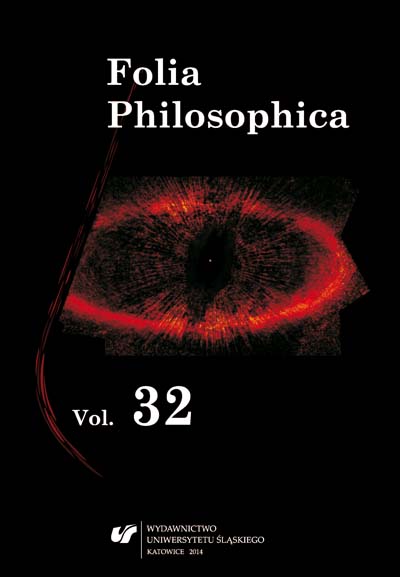Ontologiczny dowód na istnienie Boga. Immanuel Kant i Anzelm z Canterbury
Ontological argument for the existence of God. Immanuel Kant and Anselm of Canterbury
Author(s): Jacek SurzynSubject(s): Philosophy
Published by: Wydawnictwo Uniwersytetu Śląskiego
Keywords: God, existence, the ideal of pure reason, a priori, a posteriori, synthetic judgement, analytic judgement, stating, pure reason
Summary/Abstract: The paper concerns Immanuel Kant’s view on ontological argument for the existence of God by Anselm of Canterbury. Arguing from his critical philosophy, Kant remains sceptical about the possibility of proving the very existence of God, which he takes as only the idea (ideal) of pure reason. Seen along such lines the concept of God cannot be verified in the matter of experience. Kant’s critique was based on refutation of speculative character of theological speculation related to the tradition of natural (rational) theology. From this point of view he takes it as impossible to derive a priori the real existence of subject merely on the basis of taking it as the greatest thing that can be conceived, that is the best thing that might exist. The idea of the highest being has in Kant merely intellectual status, that is, it has it source in (pure) reason only and in this sense its real existence cannot be subject of analysis (scrutiny). Interestingly, what Kant has in mind in his critique of ontological argument (besides other arguments) is Descartes’ argument which is to an important degree different from the one by Anselm. In this paper similarities and differences between Kant’s refutation and Anselm’s support of the ontological argument are discussed.
Journal: Folia Philosophica
- Issue Year: 2014
- Issue No: 32
- Page Range: 13-45
- Page Count: 33
- Language: Polish

